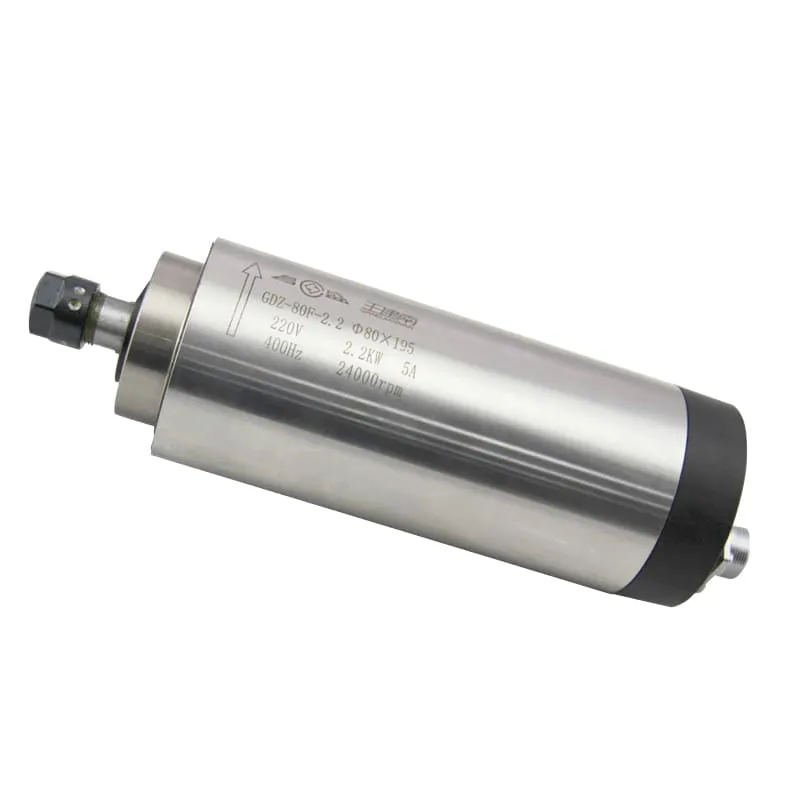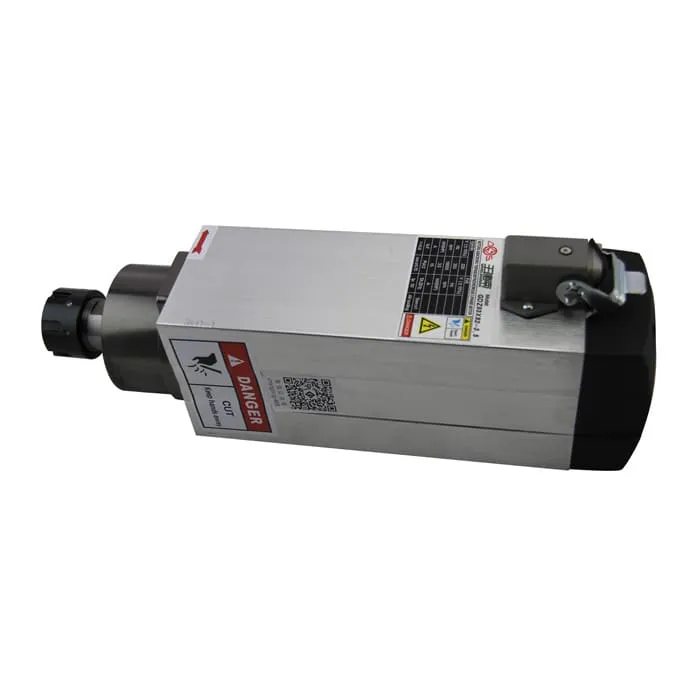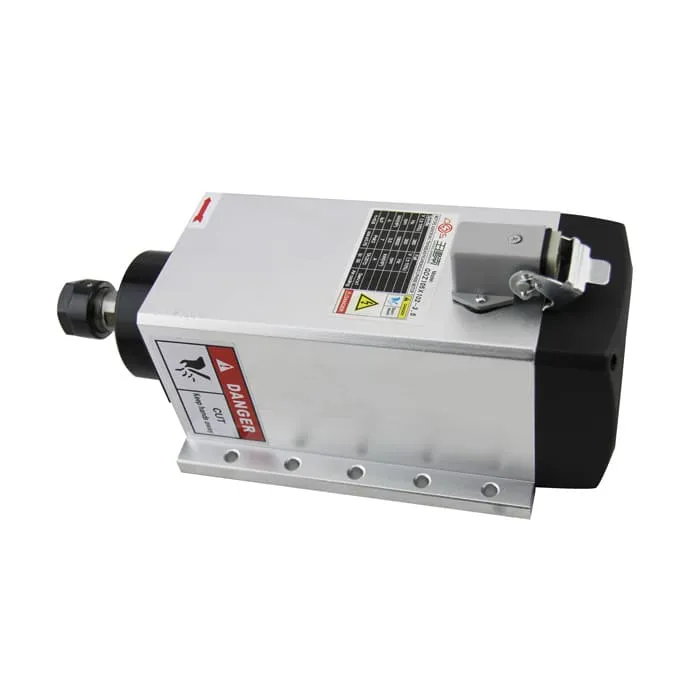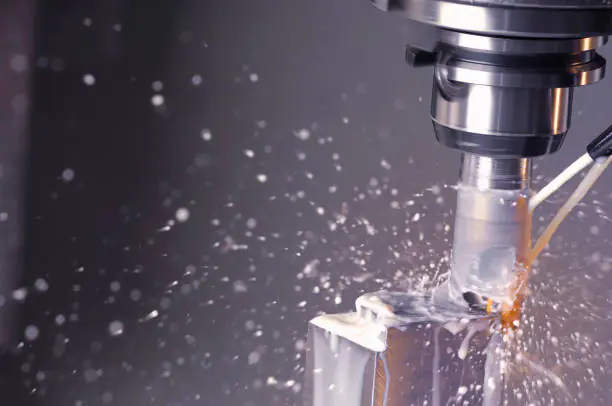How Much Do CNC Machinists Make a Year
Understanding CNC machinist salaries is crucial for both newcomers to the field and experienced professionals. This comprehensive guide explores the earning potential, factors affecting pay, and career growth opportunities in the CNC machining industry.
Overview of CNC Machinist Earnings
The annual salary of a CNC machinist varies significantly based on experience, location, and expertise. Currently, CNC machinists in the United States earn between $35,000 to $75,000 annually, with the median salary around $48,000. Top performers, especially those working with advanced equipment like the 2.2KW ER16 Air-Cooled Spindle, can earn even more.

High-quality equipment expertise can lead to better compensation
Experience Level and Salary Progression
Entry-Level (0-2 years)
- Starting salary: $35,000-$42,000
- Focus on basic operations
- Training opportunities
- Learning machine setup
Mid-Level (3-5 years)
- Salary range: $42,000-$55,000
- Advanced programming skills
- Multiple machine operation
- Quality control experience
Senior Level (5+ years)
- Salary range: $55,000-$75,000
- Complex project management
- Team leadership
- Advanced troubleshooting
Geographic Salary Variations
Salary ranges by region:
| Region | Average Salary | Salary Range |
|---|---|---|
| Northeast | $52,000 | $45,000-$78,000 |
| Midwest | $48,000 | $40,000-$70,000 |
| South | $45,000 | $38,000-$65,000 |
| West | $55,000 | $48,000-$82,000 |
Specialization and Advanced Skills

Working with advanced systems like the 3.5KW ER25 Air-Cooled Spindle can increase earning potential
High-Paying Specializations:
- Aerospace components
- Medical device manufacturing
- Precision tooling
- Multi-axis programming
Industry Sectors and Pay Scales
Different sectors offer varying compensation:
“The aerospace and medical device industries typically offer the highest compensation for CNC machinists, with salaries 15-20% above industry averages.”
Skills That Command Higher Pay
To maximize earning potential:
- Master CAD/CAM software
- Learn advanced programming
- Develop quality control expertise
- Understand preventative maintenance
- Gain leadership skills
Education and Certification Impact
Educational achievements affect salary:
- Technical certification: +5-10%
- Associate’s degree: +10-15%
- Bachelor’s degree: +15-25%
- Industry certifications: +8-12%
Overtime and Bonus Opportunities
Additional earning opportunities include:
- Overtime pay (typically 1.5x)
- Performance bonuses
- Shift differentials
- Production incentives

Operating advanced equipment like the 3.5KW ER20 Air-Cooled Spindles can lead to specialized roles with higher pay
Career Advancement Paths
Progression opportunities include:
- Shop supervisor
- Production manager
- Quality control manager
- CNC programmer
- Manufacturing engineer
Benefits and Total Compensation
Common benefits package includes:
- Health insurance
- Retirement plans
- Paid time off
- Training allowances
- Tool allowances
Industry Demand and Job Security
Strong job security factors:
- Growing manufacturing sector
- Automation trends
- Skilled worker shortage
- Industry expansion
Negotiating Better Compensation
Tips for salary negotiation:
- Document achievements
- Research market rates
- Highlight specialized skills
- Demonstrate productivity improvements
- Show certification progress
Future Salary Trends
Expected developments:
- Increased automation expertise demand
- Higher pay for multi-machine operation
- Premium for programming skills
- Growth in specialized industries
Professional Development Impact
Investment in skills pays off:
- Advanced machinery operation
- Programming certifications
- Quality control systems
- Leadership training
- Industry-specific expertise
Work Environment Factors
Workplace conditions affecting pay:
- Shift work premiums
- Climate-controlled environments
- Safety requirements
- Physical demands
- Precision requirements
FAQs
1. What qualifications do I need to become a high-paid CNC machinist?
Most high-paying positions require a combination of formal training (technical school or associate’s degree), industry certifications, and 3-5 years of hands-on experience with advanced machinery.
2. Which industries pay CNC machinists the most?
Aerospace, medical device manufacturing, and precision tool making typically offer the highest salaries, often 15-20% above industry averages.
3. How can I increase my salary as a CNC machinist?
Focus on acquiring advanced programming skills, learning to operate complex machinery, obtaining industry certifications, and gaining experience with specialized applications or industries.
4. Does location significantly impact CNC machinist salaries?
Yes, metropolitan areas and regions with high concentrations of aerospace or medical device manufacturers typically offer higher salaries, sometimes 20-30% above national averages.
5. What additional benefits should I consider besides base salary?
Consider the total compensation package, including health insurance, retirement plans, overtime opportunities, shift differentials, and training allowances.
Conclusion
CNC machinist salaries offer attractive compensation with significant growth potential. Entry-level positions starting at $35,000 can progress to $75,000 or more with experience and specialized skills. Key factors influencing earnings include location, industry sector, experience level, and technical expertise.
To maximize earning potential, focus on continuous skill development, specialized training, and staying current with advanced manufacturing technologies. Consider pursuing opportunities in high-paying sectors like aerospace or medical device manufacturing, and invest in learning to operate sophisticated equipment.
Remember that total compensation extends beyond base salary to include benefits, overtime opportunities, and advancement potential. With the right combination of skills, experience, and industry focus, CNC machinists can build rewarding, well-compensated careers in manufacturing.
For information about the latest CNC technology that can enhance your career prospects, don’t hesitate to contact us about our professional-grade equipment options.

